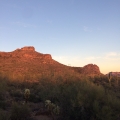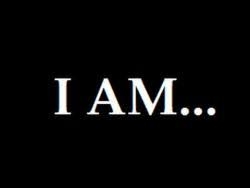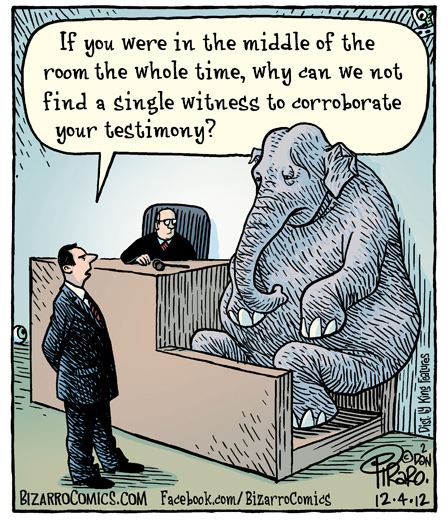Counterintuitive
 Jason
God EmperorArrakis Moderator
Jason
God EmperorArrakis Moderator
Reading the book Afterzen, I was reminded of some insights I'd once had but since forgotten, those of impermanence. Specifically concerning the amount of energy we invest in life, in ourselves and our personalities, in our likes and dislikes and all the things that differentiate us from others.
Underlying this process of becoming, of arising and ceasing, is a void. Everything is empty. Empty of permanence. Empty of stability. Empty of selfness. Little births. Little deaths. We cling to the ephemeral and it causes us suffering because the very nature of phenomena is itself change, inconstancy. That doesn't mean we shouldn't put forth effort towards what brings ourselves and others happiness. But in the end, even these things are but globs of foam floating down the Ganges. To hold onto them is like trying to hold onto a mirage, empty, void, and without substance.
Life is substanceless. Happiness is ultimately found in letting go, not in holding on. But for some reason, even though I know this, I still can't loosen my grip. Or rather, the more I let go with one hand, the tighter I seem to grasp with the other. It all seems so counterintuitive, so against the flow; and the truth is, I don't think I want to let go just yet. But I guess that's the dilemma most of us face, isn't it?






Comments
Very true. I’ve often found during my time with buddhism that the insight into impermanence on its own is not enough to reach the point of letting go. That in order to really let something go, you have to realise it’s specific drawbacks. For example the Buddha when encouraging people to let go of sensuality would talk about all the negative things that holding on to sensuality creates.
It's a bit like a person speeding recklessly. Then, on the opposite carriage of the freeway, they see the blue lights, the paramedics, the Fire personnel, the police cars and the wreckage. It was a two-car disaster, and it took both drivers out, because they were speeding.
So the driver, rubbernecks. They slow down, check to see if they can see anything, and then, as they pass on, they speed up again. And hit the pedal to the metal.
because even with the very real and present evidence of what just happened...
...It couldn't possibly happen to them.....
Real insight into emptiness and not the insight derived from an intellectual process, such as everything is made of components and therefore has no abiding self, never leaves once experienced, without an experiencer. Those without vajra like samadhi however,do leave it, quite often actually, but when they come back it is a always there. Insight resulting from transcendent prajna is permanent, while intellectual insight comes and goes.
The void does not underlie everything, it invests everything. Form really is emptiness.
Happiness indeed results from letting go, but its a complete letting go that occurs beyond one's efforts and includes letting go of the concept of self , the concept the world is real, and the concept that there is a difference between the two( self and world). If there is any concept or effort in the letting go it's not letting go. One can't try to let go, that is why sitting quietly in meditation and letting go of our agendas is important.
Real, complete, letting go will not be one's choice, it will just happen in a mind prepared by the teacher, teachings and meditation.
I have been reading comments on the forum about first having this and that before beginning meditation. Meditation, if done correctly, involves observing the mind, and the true nature of mind is what Buddha realized, so meditation is clearly necessary. Without insight into mind's true nature, which is also the true nature of the world, such things as sila and dana will be misapplied and potentially harmful. Therefore it is critical that we look at mind and familiarize our self with it before attempting such activities.
Thank you @Jason for the post.
Great post @Jason - thank you......
I don't know if this would be pertinent or how it might apply to you, but what came to my mind was something that was said in a teaching I was listening to today. There are two ways to hold onto something, palm side down with a closed fist or palm side up with an open hand.
Ajahn Brahm mentions this in some of his talks
The dilemma it would seem is 'me' and 'I am' quite persistent and dare "I" say convincing
From a Buddhist perspective (one that involves rebirth) we have had many life times to perfect this sense of a permanently abiding self, with the constant ongoing re-conditioning of the me, my, mine and I we have it down to a fine art.... So letting go of this sense of a permanently abiding self is not going to be a walk in the park...
I want to be me when I'm enjoying life (desire -clinging), but I don't want to be the me when I'm not....(aversion-letting go)
It's a case of ......
I want the suffering me to disappear and for the non suffering me to stay
But I can't have my cake and eat it.... perhaps there's a middle way
See? Nothing new under the sun. Mankind has been dying for ages - ever since we first too breath, actually - and gamely ignoring the fact.
—
Turn up, open up, let go.
(To misquote Timothy Leary)
Apart from people in comas, even some form of activity there, emptiness of mind is not vacant, awaiting some alien Buddha Nature arrival ... who guessed there is no dilemma except the one we grasp hold of ...
This morning, I awoke from a dream. I remembered what I could of it and then let it go.
That wasn't difficult at all even though at the time it was as real as this I am awake moment. Is letting go difficult, or even necessary, when we know the person doing the letting go has no substance and what is to be let go has no substance? The me who isn't me sees the dream who is dreaming life and laughs. For most of my life, I thought the lyrics to the Beatles song Bungalow Bill were 'or that you're insane'. But they really are 'all the children sing'.
Hi Shoshin, good morning from an only slightly trembling Hawaii. What you write about is called by some egolessness of self: the realization that we have no central entity or abiding essence doing our thinking, our laundry, or our dying etc.
Ego is quite convincing as you say. Many of us never even consider that it isn't us, a fact that makes Buddha's discovery all the more amazing.
"Me" may seem pleasurable at times, but in fact it is always a burden for us. One can actually enjoy life better without an ego than with one. Ego is like a police state where everything we do is being monitored and decided upon whether it fits the state's wants or not. We may go to a party at a police state, but we have to be careful what we say or do. We can't completely relax because big brother is watching. That's the way ego is, always observing to see if we are fulfilling it's needs.
One can experience ego's absence in an instant or have it erode away through time spent in appropriate meditation. It most definitely can be done, and to fully enjoy the party of life it must be done, no feasible alternatives exist. Money, sex, power, drugs,
holidays, fun etc at some point all become polluted by ego.
Watch out for the wasps.
I thought this was a pithy reminder from Matthieu Ricard, that I received this morning....
(Jamgön Kongtrul Lodrö Thaye, Yonten Gyatso, 1813-1899)
If i may,@federica, say a few words about the author of the quote Lodro Thaye. He was the leader of the Rime' movement in Tibet. At the time, contentiousness reigned among the various Buddhist schools, so Lodro Thaye reviewed texts from every Buddhist group in Tibet and found a common spiritual ground for all the groups, helping to relieve the divisiveness.
As one might imagine, he was a towering intellect and scholar who also had the wherewithal to attain enlightenment in one lifetime.
May i suggest if you feel inclined and haven't already read it the " Song of Lodro Thaye" a Tibetan Doha wherein he covers the complete Tibetan Buddhist path in some four pages. It is in a book of Dohas entitled "The Rain of Wisdom"" ( that i also recommend) and the Doha may even be found on the net. I haven't checked.
Lodro Thaye (Glorious Intellect) thank you so much from the 21st century.
It would seem...

.....the elephant in the room when it comes to discussing issues surrounding the aggregates that make up the clinging 'self'

Hope things begin to settle down for your part of the world @Tsultrim ....In other words Mother Nature has finished ranting...mind you she got good reasons to rant about what we humans are doing to the planet...
No one talks about it, but you can hear it trumpeting where ever humans gather.
I find your post very interesting. Do you write Dharmic Poetry like:
There is no one to know yet there is knowing No one to see yet there is seeing No one to be but there is being How could it possibly be?If so would you write one for me, but please don't feel obliged. I would very much like to read more of your posts about how you experience things ( possibly without an experiencer) Nice to meet you
Not to be rude, but reading sutras would be time better spent than reading any of my nonsense.
As long as you’re paddling it’s always productive.
So titan/tighten. Around what though?
Many of us practice a focus on being Buddhist in some form. We may never undo dharma allegiance, certainly to do so prematurely is a waste ...
We never lose our individual character/flavour/expression, what we lose is the foaming at the mouth, the hot head, the intense feelings, the wild drives ...
That is the plan. A great plan. A tight wheel, stops turning ...
A tight wheel, stops turning ...
what came to mind is the water wheel. the river,the water is dharma.it spins the wheel forward. the wheel goes with the flow. dharma enables the flow state .
or a squicky wheel requires oil. we are the wheel.the oil is dharma.wheel improves, less noise and better function in unity with the air.
Indeed.
Stream entry is as you mention, the flow, not the end of endless ideas of position.
Wheel breaks. River flows still ...
until a new wheel experience the river. the wheel may change but the experience is the same. us old wheels see the young engage in the dharma and see movement and eventually rest.
Rest In Peace, what Sufism calls the small death, following the counterintuitive advice to 'die before you die' is the present moments mindfulness.
If that awareness is named, experienced or exists, it is a karmic product and not empty being. How on earth can that be? It can't but the paradoxical nature of Awakening is precisely that which is not this or that ...
Still the mind ... and if the mind is stilled ... it is still the mind. Look for the emptiness, how to find that?
You can not. You must.
... and now back to the can-can

hay lobster,was the great rumi,a part of the sufi tradition? his heart poetry is wonderful.his tribute that love reigns supreme is great,imo.
Rumi was a Sufi, poet, pole dancer (sort of ... the whirling dervishes dance/circle around the qutb or pole - when they are not being banned for heresy).
Rumi was not a Buddhist but what a bodhi ...
Last night I begged the Wise One to tell me the secret of the world.
Gently, gently he whispered,
"Be quiet,
this secret cannot be spoken,
it is wrapped in silence."
Bodhi Rumi
Here is the Buddhist version
https://www.accesstoinsight.org/tipitaka/sn/sn01/sn01.020.wlsh.html
Those who go by names, who go by concepts,
Making their abode in names and concepts,
Failing to discern the naming-process,
These are subject to the reign of death,
He who has discerned the naming-process
Does not suppose that one who names exists.
No such case exists for him in truth,
Whereby one could say: "He's this or that"
If you know what this means, tell me, fairy.
Ay caramba!
All phenomena are empty.
All phenomena appear substantial.
Counterintuitive.
Venerable Nāgārjuna says:
(Āryanāgārjunasyamadhyamakaśāstra, T1564.35c27)
On a basic level, the level of binary thinking, we have a 1 and a 0.
1+0 is supposed to equal something other than 1.
Counterintuitive.
The solution is that the suggestion of the two representing binary poles, existence and freedom from it, is not accurate. There is no "1 vs 0". But I find that there is no " 1 vs 0" quite counterintuitive.
Sometimes I think I'm a closet Sarvāstivādin: "Everything exists. There. That solves that."
thank you lobster. i bow at his greatness.
that's a wonderful quote of rumi.very dharmaic. the buddhist version would be noble silent.in a way "feel" the dharma.continue the theme,lao through dao ,those who know don't say;those who don't know say.
i don't know ? is zen. how wonderful.
long time aqo,i saw the 1 and 0 the same. it's about location.the line representing one,is the side angle.pretty narrow.move position "face to face"it's a 0 in full.very dao-chan.just sharing.
You can also just squeeze the zero. It turns into a one pretty fast when it's being manhandled .
.
awesome comeback!mane squeeze might be apt.as in old friends hugging each other tight.anyway got to make that money.trying to be a zen gardner.crappy at it by the way.have a great one.
Speaking of wheels (a few post above) and suffering, this by Leigh Brassington:
“Maybe instead of using the usual English words, what if we try working from the literal meaning of dukkha - "dirty hole". The hole originally refered to the axle hole in a cart wheel. In order for the wheel to turn smoothly, the hole needs greasing. But the grease can also cause dirt and pebbles to collect in the hole, thus giving an unsatisfactory ride. So a dirty hole produces unpleasantness.’’
http://www.leighb.com/bummer.htm
PS: I had heard another person translate dukkha literally as an ill-fitting axle making for a bumpy ride, but cannot find the reference at quick Google-glance
(http://newbuddhist.com/uploads/editor/1j/9fj5uxvctx4g.jpeg "")
Yes, @Dhammika , it has been mentioned before on this forum...
Here and here, for starters.
It does. It is.
Some of us are not intuitive, we are driven by logic. That is fine. It is important and useful. Developing our intuition can make us more attuned to 'processing without understanding', which can also be very useful.
In ancient psychology, there is an awakened mind beyond:
This can be described as counterintuitive, or beyond personal being in paradoxical terms: